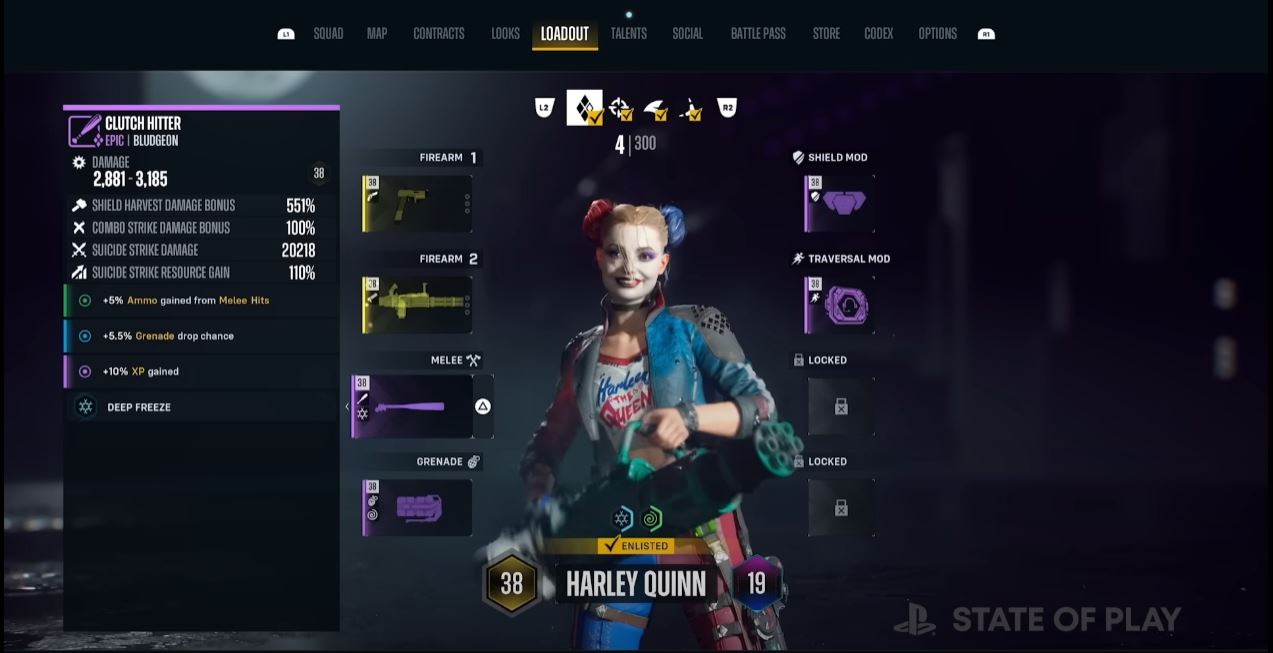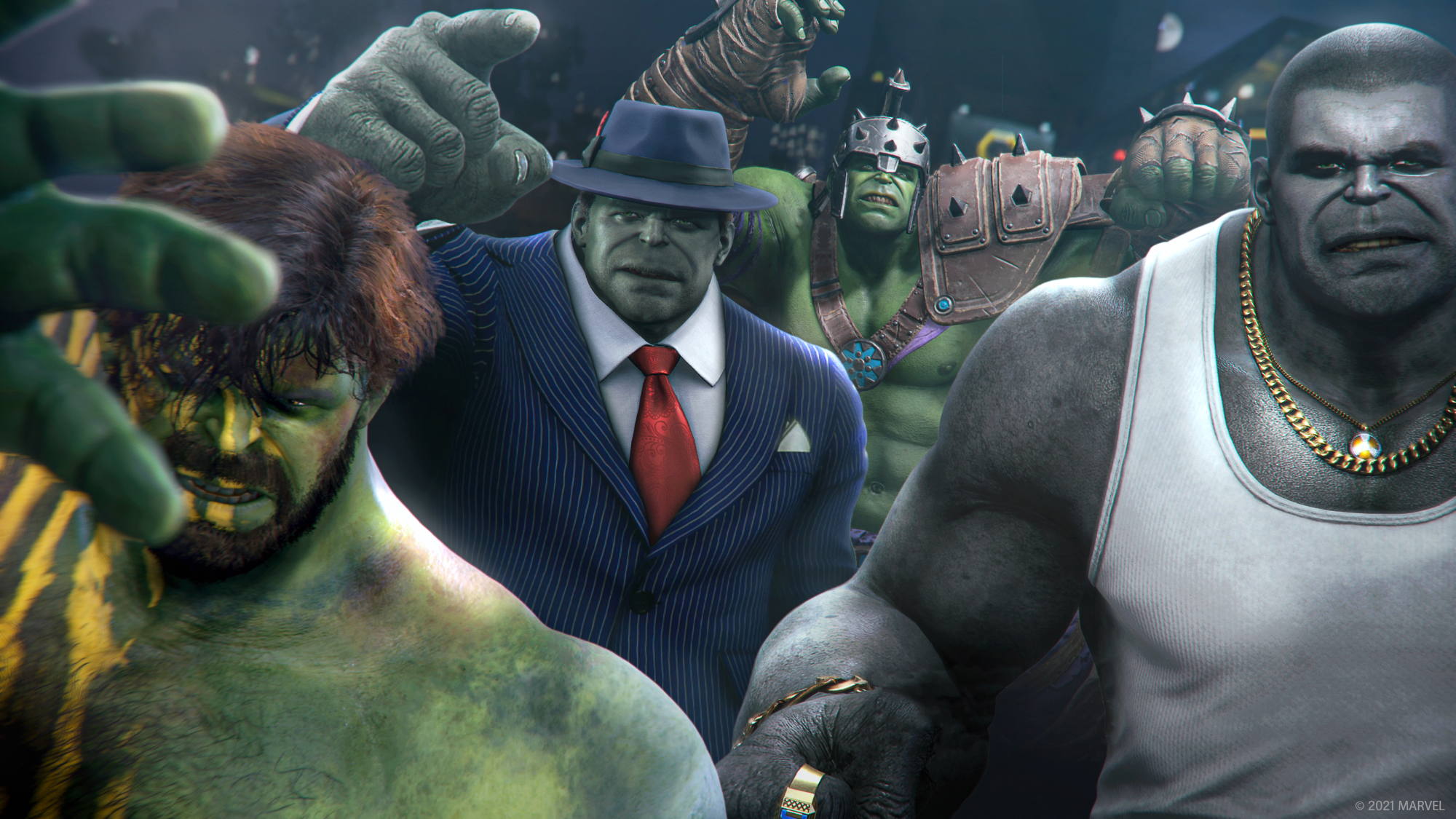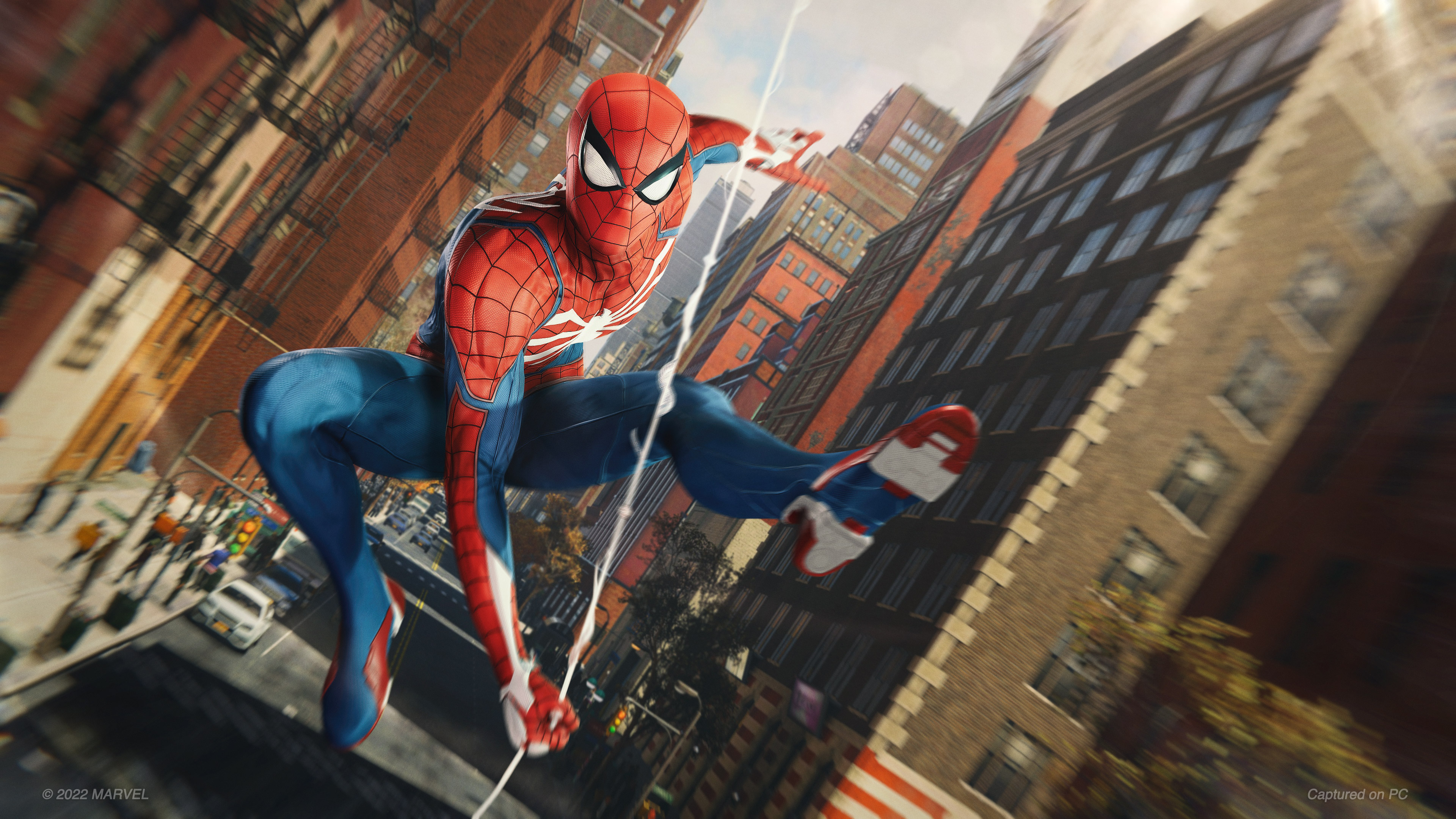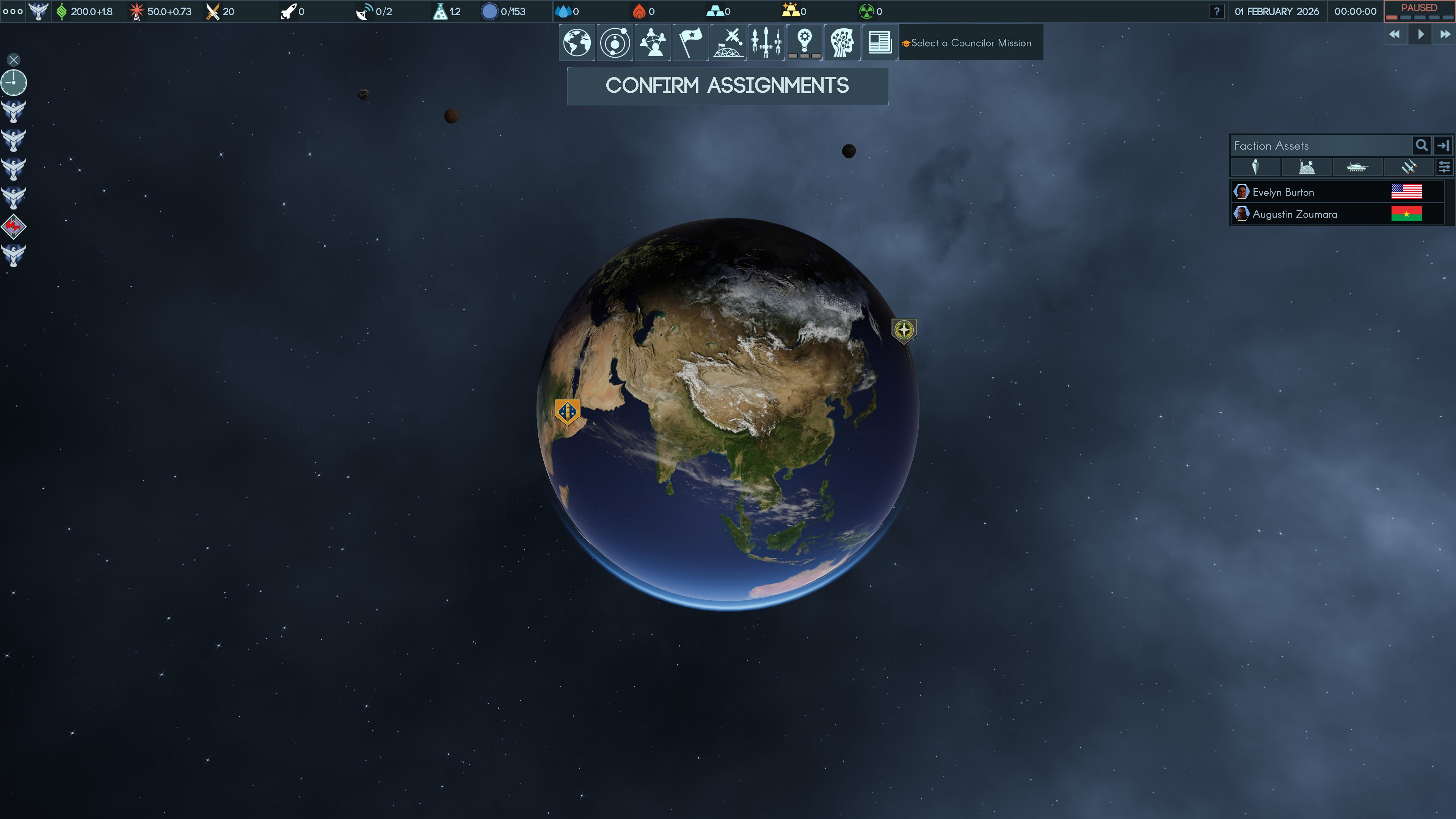Superheroes and live service is a dreadful combination
Developers I am begging you, stop trying to make this happen.
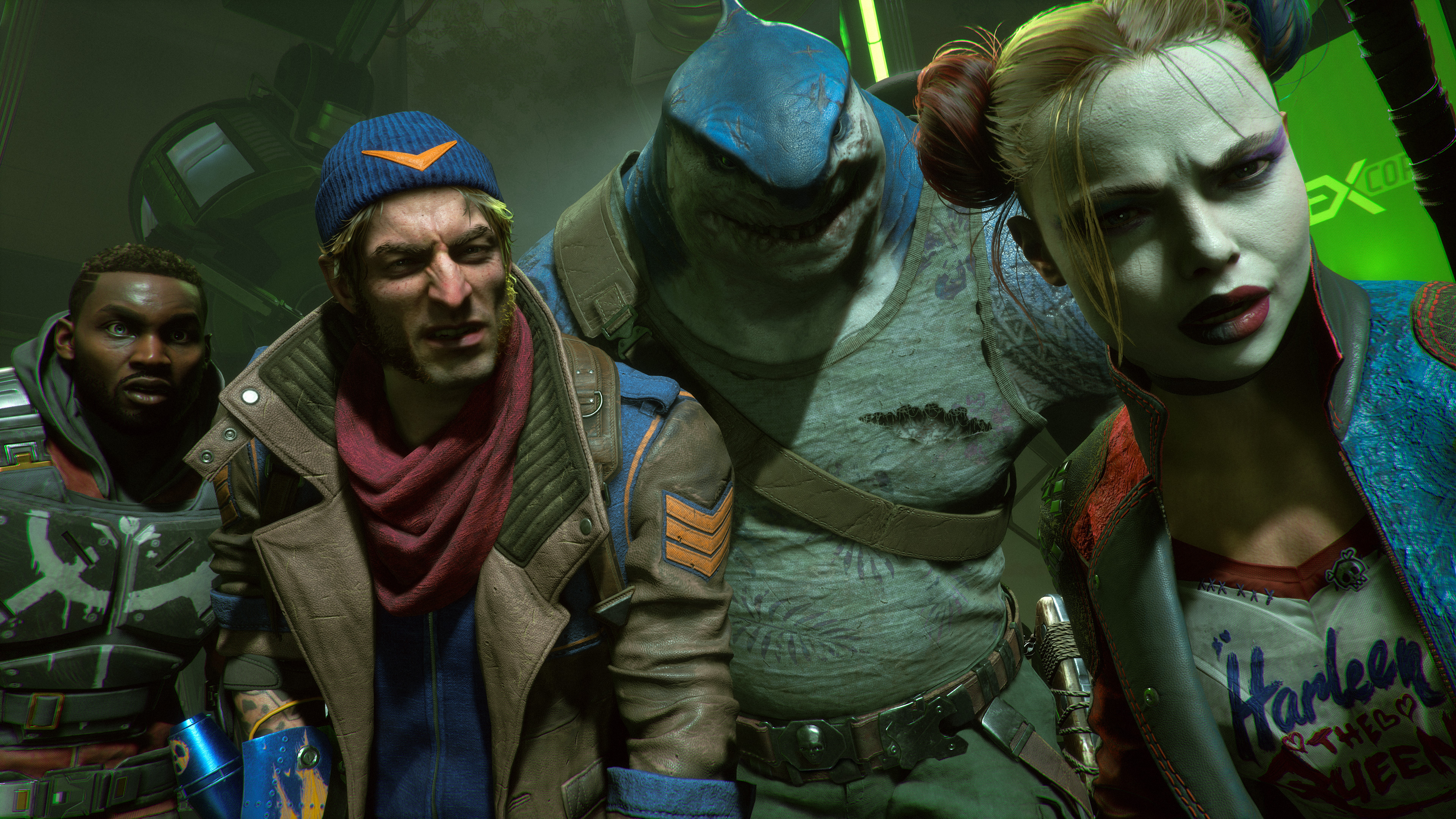
Yesterday, at Sony's State of Play presentation, we got a deeper look at Suicide Squad and such thrilling features as:
- A loot system, complete with 'gear score' and set bonuses.
- Upgrade and crafting systems.
- A battle pass.
- Giant, glowing weak points on everything, including a tank.
- A guy whose entire shtick is boomerangs firing an SMG over and over.
The presentation has received a pretty universally negative reaction. Partly people are just getting pretty tired of how common these kinds of mechanics are now, but there's a more specific problem here: superheroes and live service is a fundamentally awful combination.
I get why developers go after it. You take superheroes, the biggest thing in entertainment today, and you combine them with live service mechanics, proven to have enormous potential for profit over a long period—surely that's a chance for huge success? But after recent messes like Marvel's Avengers and Warner Bros.' own last effort Gotham Knights, we're now past the point where developers need to realise there's a conflict here that no amount of level 34 vibranium gauntlets can fix.
Take that loot grind, to start with. The default approach of games like this is to chase the Destiny model—a slow treadmill of progress based around incrementally better weapons and accessories. Indeed, the new Suicide Squad footage boasts of six different classes of guns, a variety of weapon manufacturers they can hail from and themed gear sets that unlock new modifiers, all contributing to your character's power level via a gear score. Shots of the character menu show a grimly familiar UI festooned with numbers and stats as Harley Quinn stands there grinning with bizarre enthusiasm about her latest minigun drop.
That just simply isn't the superhero fantasy. Superheroes do not pick up loot off bad guys they defeat and equip it for a tiny bonus to their strength. The point of superheroes is that they are super—when we meet them, they are already fully formed, with unique and interesting powers and abilities. When they increase in power, it is by great leaps, not 3% better armour penetration. Their specialness comes from within—either because of innate talents or superpowers, or because of incredible, signature gadgets they wield, often designed themselves. When they use normal guns and gear, the focus isn't on the items themselves, but the wielder's skill. Black Widow is deadly with a pair of pistols because she's an elite assassin, not because she looted some really good ones off a dead Hydra agent.
It is simply a different power fantasy than the rags-to-riches journey that these loot grinds are based on—going right back to the Dungeons & Dragons fighter who starts as a level 1 farmhand with a spear, and quests to one day become a level 20 knight clad in enchanted armour. It feels absurd for King Shark, the monstrous son of an underwater god, to be rifling through his drops to figure out which pistol he should switch to. The more iconic the character, the more you feel that disconnect. Marvel's Avengers pushed this wrongness to the point of performance art with its loot, making the Incredible Hulk regularly swap out his actual bones for ones he found on the floor in order to progress.
The one joy there should be in superhero loot is getting to mix and match different armour pieces to make your own takes on the costumes, but outside of 2017's Injustice 2, that seems to be off the table. I'm assuming it's a licensing issue—Marvel and DC not wanting their characters to be too malleable—but whatever the reason, the rule for superheroes seems to be that gear can't change their look. Not without buying expensive skins that prey on people's love of iconic or obscure outfits from the films and comics, at least.
Keep up to date with the most important stories and the best deals, as picked by the PC Gamer team.
The other problem is that live service means multiplayer. For an action game, making even one superhero feel authentic and exciting to control is a serious challenge—how they move, how they fight, how they sound, it all has to feel true to a character that's larger than life. Think of Spider-Man's web-slinging, or Superman's flight, or Hulk's mighty blows—it has to feel exactly right, or what's the point? But multiplayer means you not only have to pull that trick off multiple times, it also gets harder every time, because each character needs to feel totally distinct from all the others.
Starting with four characters, and inevitably having to stack up more for future content drops—it's an impossible challenge. Marvel's Avengers and Gotham Knights prove it, with heroes that not only feel half-baked and muddled, but also like they're working off the same core template with a few extras each. As Tyler Colp wrote in his Gotham Knights review, its "attempt to translate Arkham into an online co-op game fragments great design into jagged pieces for the cheap dopamine hit of gradual progression." It's so far from the fantasy that you want.
Sure enough, the Suicide Squad footage shows all four characters bouncing around weightlessly as they shoot the same guns at spongey weakspots, showing their personalities only through canned melee animations. There's so little of their identities evident in how they move and fight that the trailer has to keep cutting between them as fast as possible and barrage the viewer with one-liners to try and create some sense of this being a super-team. Hopefully there's something in Suicide Squad that'll still surprise us, but based on everything we've seen so far, I'm seriously wary.
It's such a shame, because superhero games used to be all about zeroing in on one character and not only nailing the feel of that hero, but building a whole world around them to reinforce it. Games like Arkham Asylum, Infamous, The Incredible Hulk: Ultimate Destruction and Prototype—they're all thrilling sandboxes tailored perfectly to their satisfying stars, and all self-contained singleplayer experiences. The only series that seems to still be carrying that torch in 2023 is Spider-Man, protected by Sony and its love of big budget singleplayer games. Though there may at least be hope on the horizon with the announced but not yet seen Wolverine, Iron Man, and Wonder Woman games.
When even the creators of the Arkham games, arguably the best superhero games ever made, are falling into this live service trap, you know something's gone badly wrong. Once Suicide Squad is out and its battle passes have run dry, it's time we as a society collectively move on. If singleplayer open worlds aren't enough for superheroes to make money anymore, fine—but developers, I am telling you, live service cannot be the solution.

Formerly the editor of PC Gamer magazine (and the dearly departed GamesMaster), Robin combines years of experience in games journalism with a lifelong love of PC gaming. First hypnotised by the light of the monitor as he muddled through Simon the Sorcerer on his uncle’s machine, he’s been a devotee ever since, devouring any RPG or strategy game to stumble into his path. Now he's channelling that devotion into filling this lovely website with features, news, reviews, and all of his hottest takes.
